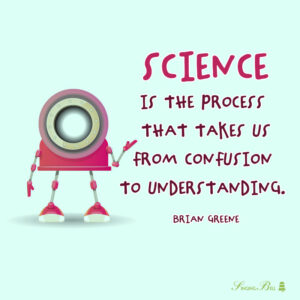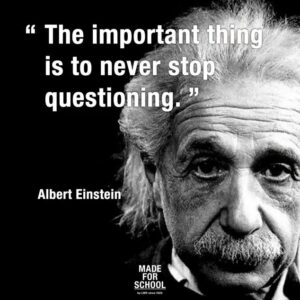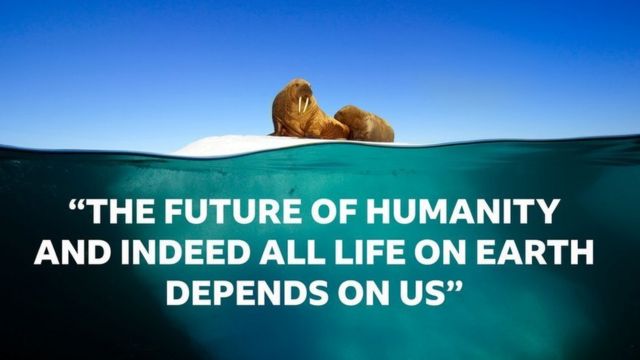Science

Science teaching at Blessed Robert Widmerpool aims to provide an outstanding science education for all our pupils that establishes a ‘Culture of Excellence’. Through the development of humility and the dependence on the children’s ability to discern how to make the right choices and respond to the big questions of the purpose and meaning of life, Science is a Sacred Subject.
Our Intent is to foster a love of science by offering a challenging and stimulating science curriculum. We want pupils to build on prior subject knowledge and develop their curiosity about the natural world, as this will enable them to develop the scientific knowledge and conceptual understanding that they need to engage in the world around them whilst acquiring specific skills and knowledge to help them to think scientifically, to gain an understanding of scientific processes and also an understanding of the uses and implications of Science. Children are encouraged to make links between the classroom science and real-life scientists, Biologists, Physicists and Chemists. It aims to stimulate a child’s curiosity in finding out why things happen in the way they do. It teaches methods of enquiry and investigation to stimulate creative thought. Children learn to ask scientific questions and begin to appreciate the way science will affect their future on a personal, national, and global level. We live in an increasingly scientific and technological age where children need to acquire the knowledge, skills and understanding to prepare them for life in the 21st century.
Aims
- Think critically and communicate their understanding;
- Have opportunities to apply their scientific skills in different contexts across the curriculum;
- Develop enquiry skills useful for science and across the curriculum.
- Ask and answer scientific questions
- Plan and carry out scientific investigations, using equipment, correctly
- Know and understand the life processes of living things
- Know and understand the physical processes of materials, electricity, light, sound and natural forces
- Know about the nature of the solar system, including the earth
- Evaluate evidence and present conclusions clearly and accurately
- Encourage children to take responsibility for their own safety and that of others and their working environment
Implementation
We have designed our science curriculum to be inclusive and adaptable to suit the needs of all pupils, including those with special educational needs and disabilities. We celebrate diversity as we come together and seek justice for all. The common good is about respecting the rights and responsibilities of all people and leaving no one behind. We provide opportunities for pupils to develop their scientific enquiry skills, including observing, questioning, experimenting, and evaluating, using a range of scientific methods and approaches. Our science curriculum also includes opportunities for pupils to develop their scientific literacy, such as scientific reading, numeracy, and communication skills.
Learning and Teaching
Scientific enquiry skills are embedded in each topic the children study and these topics are revisited and developed throughout their time at school. This allows children to build upon their prior knowledge and increases their enthusiasm for the topics whilst embedding this procedural knowledge into the long-term memory.
All children are encouraged to develop and use a range of skills including observations, planning and investigations, as well as being encouraged to question the world around them and become independent learners in exploring possible answers for their scientific based questions. Specialist vocabulary for topics is taught and built up, and effective questioning to communicate ideas is encouraged. Concepts taught are reinforced by focusing on the key features of scientific enquiry, so that pupils learn to use a variety of approaches to answer relevant scientific questions
Children’s knowledge, skills, and understanding is developed through whole-class and enquiry-based research activity. Children are encouraged to ask, as well as answer, scientific questions. Opportunities are provided to use a variety of data, such as statistics, graphs, pictures, and photographs. ICT is used in science lessons where it enhances their learning. Children take part in role-play and discussions and present reports to the rest of the class. Children also engage in a wide variety of problem-solving activities.
Wherever possible, pupils are involved ‘real’ life scientific activities.
Children are encouraged to work in these ways, so that they will ultimately gain confidence to ask questions and devise investigations to answer them.
To cater for a range of different scientific abilities learning opportunities are provided for all children by matching the challenge of the task to the ability of the child.
Science Curriculum Planning
The content of the science curriculum is devised from the National Curriculum, children’s interests and response to national and international events. Science is planned in a cross-curricular way so that it builds upon children’s prior learning. Opportunities provided ensure children of all abilities develop their skills and knowledge in each unit. Working Scientifically Progression is built into the science scheme of work, so that the children are increasingly challenged as they move through the school.
Curriculum Overviews provide the overall topic theme and indicate the links with other curriculum areas. Skills, Knowledge and Progression documents outline the key learning of the National Curriculum statements and key vocabulary which will be learnt. In order to meet the expectations pupils must firstly understand the key concept and then be provided with opportunities to apply that knowledge.
Short Term plans are produced by class teachers in the form of a weekly plan for the teaching of science. This plan lists the specific learning objectives for each lesson and gives details of how the lessons are to be taught. Working Scientifically is at the core of teacher’s planning, These fall broadly into five main types.
Types of Scientific Enquiry
- Observation over Time
- Comparative and Fair Testing
- Identifying and Classifying
- Pattern Seeking
- Researching using Secondary sources
Topic Knowledge Organisers provide key learning all children must master. Class teacher should plan a low stakes quiz which is tested regularly to support learners’ ability to block learning and increase space in the working memory. Whenever possible, planning should include Educational Visits and visits from experts who will enhance the learning experience.
Directed homework supports the curriculum covered in class, either of a research or a practical nature.
Outdoor Environment
Planning reflects a commitment to taking learning outside and provides high quality outdoor learning opportunities. Taking a Forest School approach brings learning to life! Outdoor Learning can benefit pupils in a variety of areas. It enriches the curriculum and provides first-hand experience. Opportunities for outdoor learning are identified in planning. Making the best use of the local environment is taken into consideration when planning outdoor learning. Areas further afield are also used for field work studies and exploration. We are connected to people and places all over the world. Everyone should have access to their fair share of resources.
Foundation Stage
Science is taught as an integral part of the curriculum in Foundation Stage. Through Understanding of the World children are encouraged to play, observe, explore and investigate. Science makes a significant contribution to developing a child’s knowledge and understanding of the world using the indoor and outdoor environments.
The Contribution of Science to Teaching in Other Curriculum Areas
English
Science contributes significantly to the teaching of English by actively promoting the skills of reading, writing, speaking and listening. Some texts studied in English are of a scientific nature. Oral skills are developed in science lessons through discussions and through recounting observations from scientific experiments. Writing skills are developed through the writing of investigations, research, reports and projects.
Mathematics
Science contributes to the teaching of mathematics in a number of ways. Weights and measures are used and pupils learn to use and apply number. Through working on investigations pupils learn to estimate and predict. They develop the skills of accurate observation and recording of events. Data handling skills are also developed through interpretation of results.
Information and Communication Technology (ICT)
ICT is used to support work in science. Information is researched, selected and analysed using the Internet. ICT programs such as excel, word and PowerPoint are used to record, present and interpret data and to review, modify and evaluate work and improve its presentation. iPads are used in science to research and demonstrate scientific concepts.
Personal, Social and Health Education (PSHE) and Citizenship
Science makes a significant contribution to the teaching of personal, social and health education. Recycling material and how environments change is covered and pupils and benefit from opportunities to take part in debates and discussions. By study of the different aspects of the human body, children develop an understanding of the importance of exercise and healthy eating. Science promotes the concept of positive citizenship.
Spiritual, Moral, Social and Cultural Development
Through many of the amazing processes that affect living things, children develop a sense of awe and wonder regarding the nature of the world. Science raises many social and moral questions. Catholic Social Teaching is integral to our Science curriculum, it teaches children about the reasons why people are different and, by developing the children’s knowledge and understanding of physical and environmental factors, it promotes respect for other people. It teaches us that we are guardians of God’s creation, living sustainably and enhancing the wellbeing of our planet.
Special Educational Needs
Science is an important part of the curriculum. A minority of children have particular learning and assessment requirements that could create barriers to learning. When planning, teachers provide rich learning opportunities, responding to children’s diverse learning needs which are matched to the specific needs of individuals and groups of children. Provision made enables all children to participate effectively in a wide range of activities
Assessment and Recording
Children’s work in science is assessed by making informal judgements through observation, and also through end of unit assessments. Teachers make a summative assessment of the children’s work in science at the end of each term. Assessments results are recorded and passed to the next teacher at transfer of information meeting and reported to parents during parents’ consultations.
Resources
A wide range of resources for all science teaching units in the school are kept in a central area
Weather stations are used to record weather patterns and located outside the Y5 classroom.
The library contains a good supply of science topic books. Computer software is available in the ICT suite to support children’s individual research.
Regular review of resources, are carried out so that priorities can be identified.
Monitoring and Review
The Science Curriculum is high quality, well thought out and is planned to demonstrate progression. We measure the impact of our curriculum through the following methods:
- A reflection on standards achieved against the planned outcomes;
- Tracking of knowledge in pre and post learning quizzes;
- Regular retrieval quizzes within lessons;
- Pupil discussions about their learning;
- Book Looks, discussions with pupils and staff
The monitoring of the standards of children’s work and of the quality of teaching is the responsibility of the Science Subject Leader who reports to the Senior Leadership Team.
The role of the subject leader is to have a deeper knowledge and understanding of the curriculum and awareness of the rationale for each element within the overall framework.
Monitoring ensures curriculum links, effective sequencing and planned repetition are evident to ensure knowledge is committed to memory. The subject leader role is to support colleagues, be informed about current developments in the subject, and providing a strategic lead and direction for the subject in the school that culminates in an end-of-year showcase. Staff Voice provides an opportunity to identify CPD needs, additional resources and support where required. Pupil Voice is conducted to allow children their opinions of Science in the school. This is valued and responded to.
The Science Subject Leader reports to the SLT and Link Governor. This includes an evaluation of the strengths and areas for development. They have responsibility to review evidence of the children’s work, update development plans and work alongside teachers to support and evaluate learning and teaching across the school.
Staff training and development will ensure this process of monitoring and review is effective in order to maintain high standards in learning and teaching.







